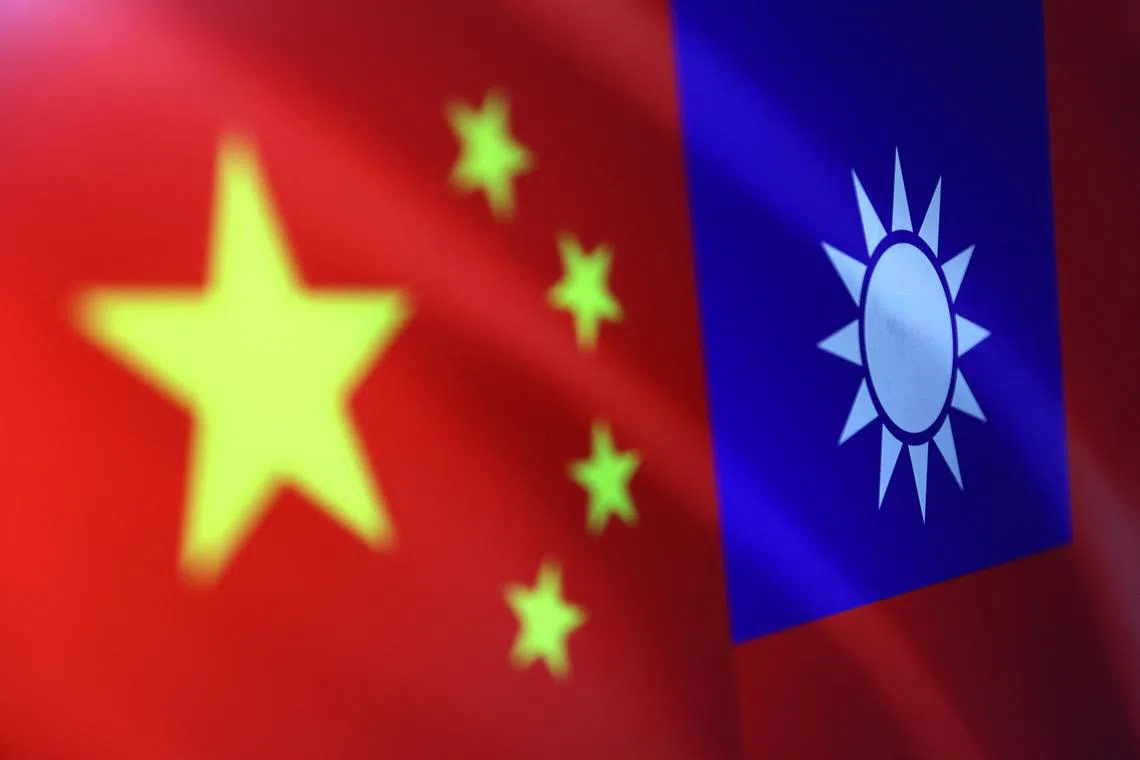China demands compensation from Taiwan after collision of navy ship, trawler
Sign up now: Get ST's newsletters delivered to your inbox

The Taiwan Strait is the site of daily Chinese and Taiwanese military activities.
PHOTO: REUTERS
Follow topic:
BEIJING - China has demanded that Taiwan compensate Chinese fishermen for losses after a Taiwanese navy landing ship and a Chinese fishing boat collided
The Taiwanese vessel – Chung Ho – collided with the Chinese trawler Minlianyu 61756 on March 27 shortly after midnight about 83km off Taiwan’s Taichung port, which sits on the Taiwan Strait, and about 16km outside of “restricted waters”, Taiwanese navy said last week.
“The responsibility for the accident lies entirely with the Taiwan ship, but the Taiwan ship had a bad attitude and evaded responsibility after hitting the fishing boat,” Ms Zhu Fenglian, spokesperson for China’s Taiwan Affairs Office, said in a statement sent to Reuters on April 4.
She said China’s preliminary investigation showed that the Chinese trawler was anchored with its automatic identification system (AIS) signal and warning lights turned on. It was hit by the Taiwanese ship, which did not display its AIS signal or warning lights, she added.
Taiwan’s navy, responding to the demand for compensation, said an investigation led by Taiwan’s coast guard was ongoing and after the probe, “follow-up matters will be handled in accordance with the cross-strait consultation mechanism and relevant procedures”. It did not elaborate.
The Taiwan Strait is the site of daily Chinese and Taiwanese military activities, though both sides normally maintain a respectful distance and there have been no exchanges of fire for decades.
China, which claims democratically governed Taiwan as its own territory, has ramped up its military drills around the island in recent years.
Taiwan rejects China’s sovereignty claims.
The Chinese military staged two days of war games around Taiwan this week, holding long-range, live-fire drills in the East China Sea.
Beijing said the exercises were a response to what it views as provocations from Taiwanese President Lai Ching-te, who won an election in 2024 and whom Beijing reviles as a “separatist”. REUTERS

